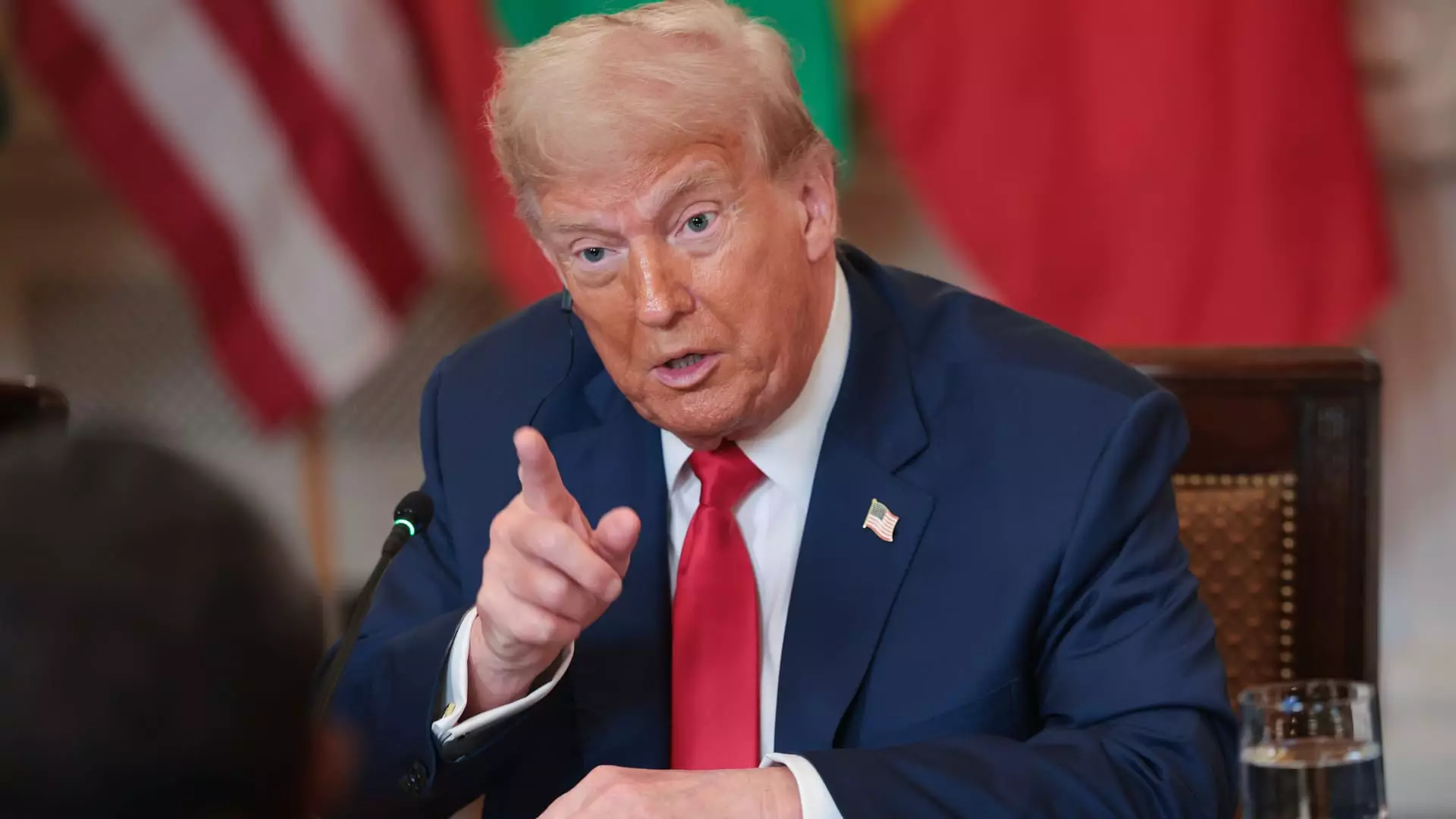In a startling display of geopolitical brinkmanship, the United States, under the guise of defending its “interests,” is recklessly deploying tariffs that threaten to destabilize the delicate balance of global trade. The recent decision to impose a 50% tariff on Brazilian imports epitomizes this dangerous shift — a move that goes beyond mere economic protectionism into the realm of international brinkmanship. Such aggressive tactics send a troubling signal: the U.S. values economic might over diplomacy, sowing discord rather than fostering constructive partnerships.
This escalation is not just about trade; it is a reflection of a broader, increasingly confrontational approach to global governance. The Trump administration’s rhetoric frames Brazil’s internal political turmoil and legal processes as justification for punitive tariffs, revealing a troubling tendency to weaponize economic policy as a political weapon. By singling out Brazil’s leadership and legal developments, the U.S. risks turning trade disputes into tools for political retaliation, undermining the foundational principles of fair diplomacy.
The decision to escalate tariffs based on internal political disputes, rather than tangible trade imbalances or unfair economic practices, is fundamentally misguided. It ignores the interconnectedness of nations and the importance of stability for economic growth. Targeting Brazil — a vital regional partner and one of the world’s largest economies — with drastic tariffs risks provoking retaliatory measures that could cascade into broader economic repercussions, jeopardizing jobs, markets, and global confidence.
The Illusion of Fairness and the Reality of Economic Sabotage
The Trump administration’s framing of Brazil’s trade policies as “unfair” appears, upon closer scrutiny, to be a veneer for unjustified economic coercion. Official trade data indicates that the U.S. actually enjoys a substantial goods trade surplus with Brazil, totaling nearly $7.4 billion. If anything, the narrative of “unsustainable trade deficits” is a manufactured concern, fabricated to justify aggressive tariffs aimed more at political signaling than economic necessity.
Moreover, the assertion that Brazil’s digital trade practices threaten U.S. economic security exposes a selective parsing of facts. The investigation into Brazil’s digital policies and social media regulations seems more about provoking a narrative of victimhood than addressing genuine trade issues. This approach benefits no one but politicians craving headlines and a sense of dominance at the expense of collaborative solutions.
Weaponizing tariffs to punish internal political situations or to signal disapproval of a foreign leader’s legal proceedings — as Trump did with Bolsonaro’s trial and Brazil’s recent Supreme Court rulings — undermines the very fabric of international law and sovereignty. Such actions suggest that the U.S. sees itself as arbiter of other nations’ internal affairs, a stance that endangers the ethos of mutual respect necessary for global stability.
The Risk of a Self-Inflicted Economic Wound
Imposing steep tariffs, especially at the level of 50%, is a perilous strategy that risks backfiring spectacularly. While Trump claims that these tariffs are temporary and negotiable, history demonstrates that such measures often lock countries into prolonged trade conflicts. The threat of reciprocal tariffs looms like a dark cloud over the economic horizon, potentially escalating into a cycle of trade wars that hampers growth for all involved.
Furthermore, these tariffs threaten to undermine the recent gains made in digital economy integration and global supply chains. By targeting sectors such as digital trade and technological exchanges, the U.S. not only isolates itself but also discourages international collaboration on pressing issues like climate change, public health, and technological innovation. Instead of fostering a cooperative environment, these tariffs foster suspicion and hostility, which can only hamper the global community’s ability to respond collectively to pressing challenges.
The broader danger lies in the precedent set by such aggressive tariff policies. They signal to other nations that conflict and economic coercion are valid tools of diplomacy, eroding decades of progress toward multilateral trade agreements and international cooperation. In essence, the U.S. risks isolating itself further, losing influence, and pushing countries to seek alternative alliances outside the traditional democratic and liberal order.
A Call for Reason Amidst Rising Tensions
It is imperative to recognize that a more prudent, cooperative approach is essential for safeguarding global stability. Threatening tariffs and politicizing trade policies undermine the potential for mutual growth and international goodwill. While concerns over unfair trade practices and digital regulations are legitimate, the response must be rooted in diplomacy and dialogue—not tariffs that punish and isolate.
In a world that badly needs cooperation, the pursuit of hegemonic dominance through punitive tariffs is a dangerous game. It jeopardizes the foundations of global economic stability and risks igniting conflicts that could have far-reaching consequences. Instead, the U.S. should leverage its influence to promote fair and transparent trade agreements, encouraging dialogue rather than confrontation, and reaffirming its commitment to multilateralism.
Ultimately, aggressive trade policies driven by internal political vendettas threaten to unravel the international system of cooperation that has, until now, served as a bulwark against chaos. If the goal is truly global stability and prosperity, the path forward must be paved with diplomacy, not tariffs. The reckless escalation of trade tensions under the pretext of defending national interests reveals a dangerous blindness to the broader implications for world peace and economic well-being.


Leave a Reply